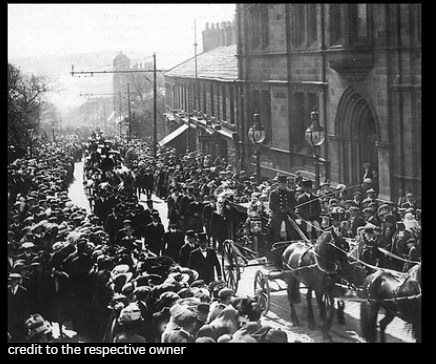On May 18, 1912, the town of Colne, Lancashire, fell silent. Shops closed, and streets filled. Nearly 40,000 people lined the roads—not for royalty, nor war heroes—but for a man with a violin.
Wallace Hartley wasn’t just the bandmaster on the Titanic. He was its final heartbeat.
As the great ship groaned and tilted in the icy Atlantic, Wallace and his fellow musicians did the unthinkable. They stayed. Amid lifeboats lowering and chaos all around, they opened their cases…and played.
Not for survival—but for peace. For courage. For love.
Many believe the last song they played was “Nearer, My God, to Thee.” A hymn. A prayer. A farewell.
When Hartley’s body was later recovered by the crew of the Mackay-Bennett, something extraordinary was found: strapped to his chest was a leather case. Inside, protected against the sea, was his violin.
It wasn’t just an instrument. It was a gift from his fiancée, Maria Robinson—engraved with a message of love.
That violin became a symbol: of grace in disaster, of music as mercy, and of the power of standing firm with dignity when the world is falling apart.
Hartley’s funeral was one of the largest ever held in his town. Not because he was famous, but because he was brave.
Some men go down in history for shouting orders.
Others are remembered for playing a melody when it mattered most.
